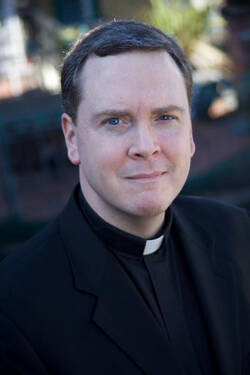When it was announced last September that Pope John Paul II and Pope John XXIII would be canonized together on the same day this month, the phones started ringing here at America. The secular press were looking for commentary and analysis. One call came from a prominent reporter at a major American newspaper who asked: “Father, would you call this a bipartisan canonization? Is Francis telling us that Catholics need to reach across the aisle?”
“No,” I said, “that’s not quite right, even by analogy. This event isn’t about what we should do; it’s about what God has already done.” The reporter responded: “Well, I can’t really print that.” Now, in fairness, I get that. When it comes to the church and the secular media, we often have unreasonable expectations. In asking the secular media to report accurately on what is in reality a living mystery, we are asking them to do more than they are really trained or qualified to do.
I have less patience, however, when it’s a fellow Catholic who is telling the story and getting it wrong. And I’ve seen a bit of that too. Not a few people have told me that they think it politically ingenious that Pope Francis decided to canonize these men on the same day, bringing together two very different people. Apart from the obvious difference that one man is Italian and the other is Polish, however, and that the two men have different personalities and styles, intellectual and artistic tastes and perhaps even different philosophical sympathies, I fail to discern a truly meaningful difference between them.
And that’s a good thing, because what we celebrate in their sainthood is what they have in common. This canonization is not about us or our narcissistic ecclesial politicking. It’s about what God has accomplished in the lives of these two great men of the church. And Pope Francis’ intention in canonizing them together, I venture to guess, has less to do with how you and I should relate to one another and much more to do with how you and I should relate to God. In other words, this joint canonization reminds us that the goal of Christian living is not to be right, but to be holy. The goal is not to possess the truth but to be possessed by the one who is truth, the one who is the way and the truth and the life.
Popes John XXIII and John Paul II were possessed by the truth. Their lives point the way to our heavenly inheritance. Yet their lives also point the way in the here and now. For each of these men testified in his own dramatic time and way that if the way to holiness is the gift of self to the person of Christ, the one who is truth, then the key to human action is the gift of self to others, those who are similarly made in the image and likeness of God—the God of Jesus Christ—the one for whom love and mercy and justice are the only standards of human action.
In an increasingly impersonal and depersonalized world, this self-gift to God and to one another, if it is truly grace-filled, will more and more resemble the radical acts of love and forgiveness to which the Gospel and their lives testify: acts of radical discipleship that are subversive of every creaturely notion of power. As Msgr. Raymond Etteldorf wrote, “A saint can be defined, or at least described, as one who lives in complete harmony with the divine will, demonstrating in an outstanding way all the virtues, in particular humility, charity and heroic suffering.”
Such were the virtues of Sts. John and John Paul. We could use more of them. If we are to avoid further narcissistic divisions in the church or secular society, then we must proceed in a penitential key, from our powerlessness, from a lived acknowledgment of the sheer gratuity of our creation and redemption. This was the narrow gate through which these two Johns once passed. Let us pray for the courage to follow them.








